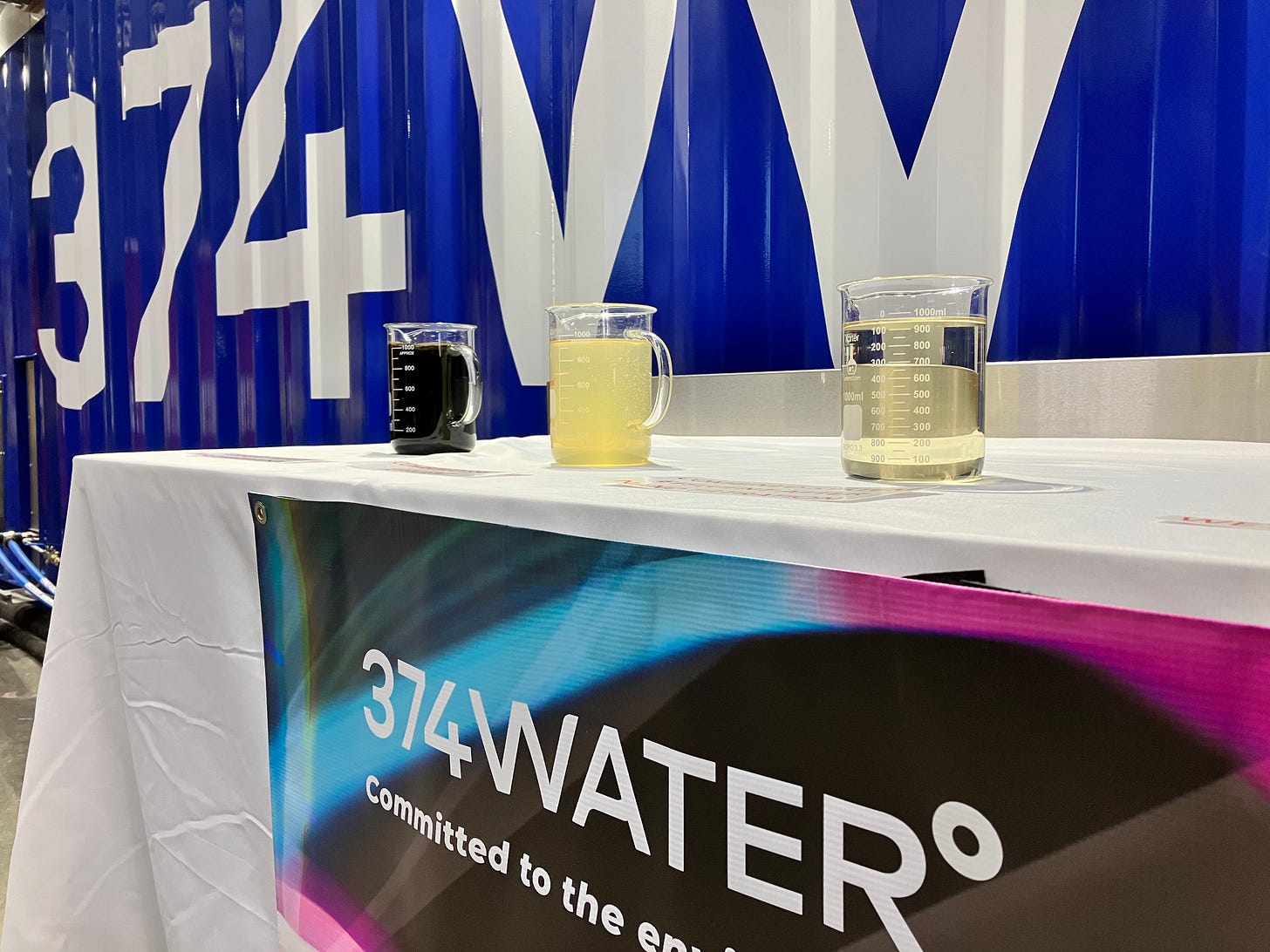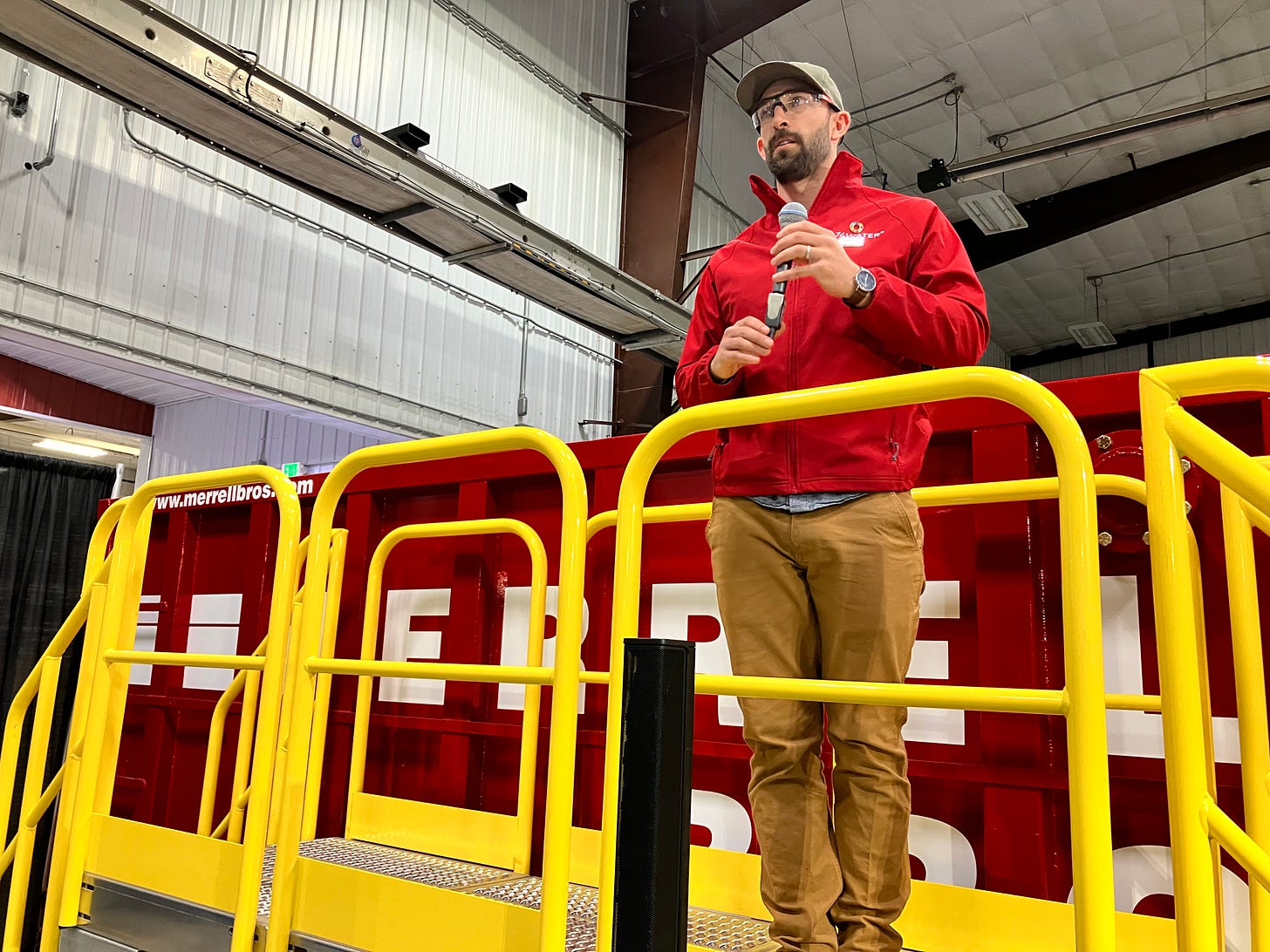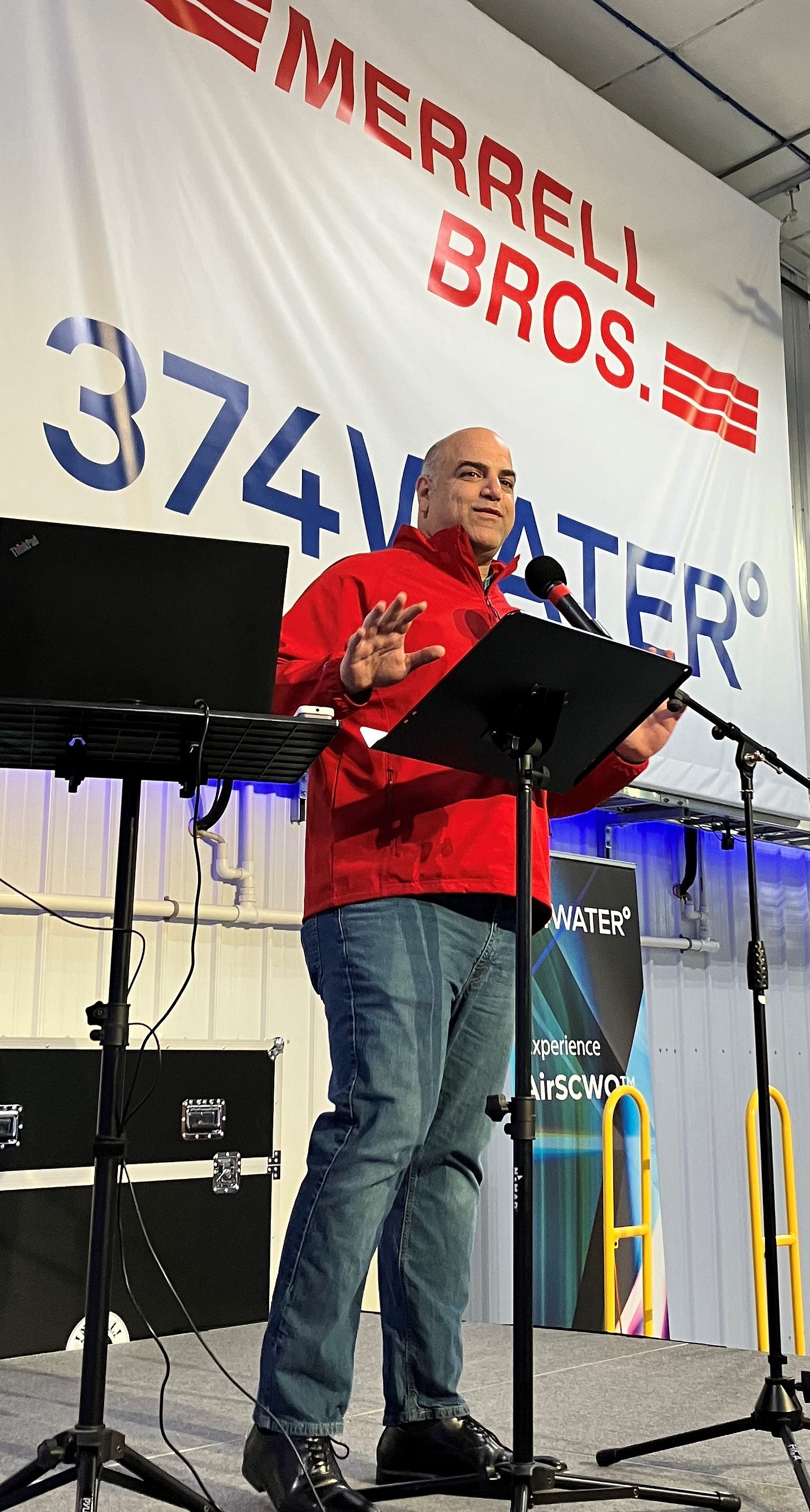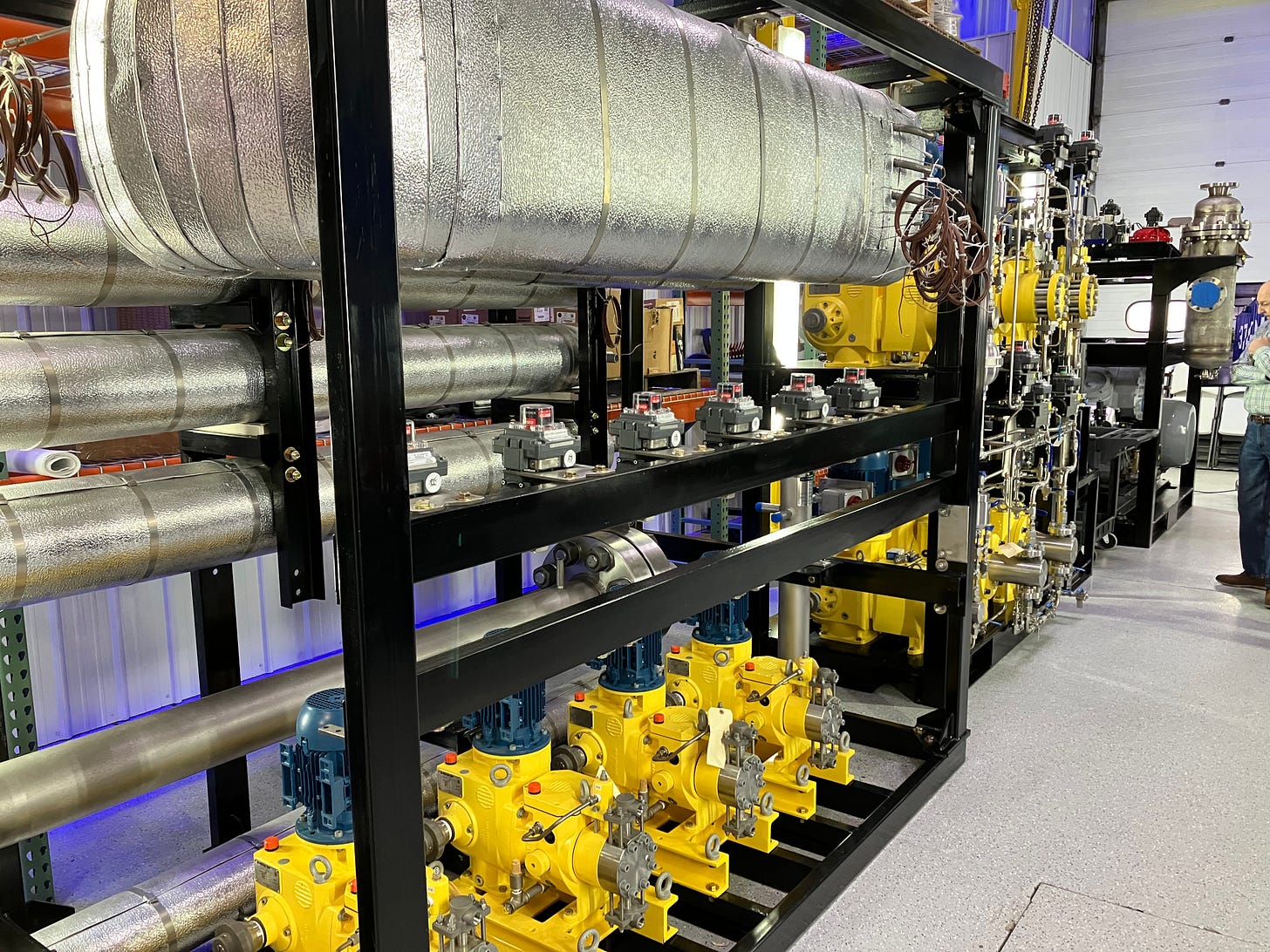Solving the world’s water problem
374Water and Merrell Bros. bringing waste oxidation technology to market
This article is brought to you by Freedom Financial.
In the United States, clean water is a given in most communities. Bathing, cooking, and cleaning are taken for granted by Americans because water is in abundance here. But that isn’t true in every part of the country or in many parts of the world.

The problem of contaminated or polluted water keeps many nations from advancing. It creates a global health risk. But a company in Kokomo believes it has a solution.
Merrell Bros., which has grown from a family farm operation into a leader in wastewater management and fertilizer production, is taking another remarkable step in its 40-year history. It has partnered with 374Water, a U.S. company that has developed a process that uses supercritical water oxidation to eliminate contaminants while producing energy.
In application, the technology cleans water for re-use, destroys chemicals and waste by-products that threaten human and animal health, and at larger scales, produces surplus energy.
“We're witnessing history,” said Dr. Marc Deshusses, Ph.D., Head of Technology for 374Water. “It's real. We have a product, and it's ready to conquer the world. This is really transformative. It's not incremental, it's not just a slight change. It is a completely different way to address wet waste.
“It enables us to treat all kinds of organic waste and mineralize them to their simplest elements. We can break down the most recalcitrant chemicals such as PFAS (polyfluoroalkyl substances). We can break down PCBs, dioxin, and other contaminants. We have some ideas in the pipeline. We see this as being the linchpin of a series of new technologies.
“It could be used in emergency situations, refugee crisis responses, disaster relief, space exploration. There are many applications, and the technology is scalable.”
A few hundred investors, community leaders, and media visited Merrell Bros. this week to see the technology in action. The oxidation units performed as advertised. Tons of wastewater were pumped through the equipment and came out safe for reuse. Merrell Bros. co-owner Terry Merrell explained the basics of the process.
“You take anything organic, and in this case, it's biosolids or sludge from a wastewater plant,” said Merrell. “You use these high-pressure pumps, and then you pump them into this reactor. In that process, supercritical water oxidation happens when you get above 374 degrees Celsius and over 3,500 psi in pressure. In those conditions, liquid biosolids become supercritical.”
The process is similar to what takes place in a pressure cooker, where temperature and pressure combine to cook food. In this case, however, the temperature and pressure are high enough to force the water and biosolids into a supercritical state of matter where it is neither a liquid nor a gas. And at that point, the biosolids oxidate and break down into water, carbon dioxide, and small amounts of various minerals, like phosphorus.
“But when that happens, there's a tremendous amount of heat that comes off that reaction,” said Merrell. “That is controlled and goes through heat exchangers. You become efficient that way because you transfer that heat back to the sludge coming into the reactor.”
Once the process is complete, the water is cooled until it becomes a gas, or steam, which can be used to power an electric generator. At larger scales, the process generates more electricity than it consumes.
“It's kind of the goal,” said Merrell. “You could be net positive on electricity. And you're eliminating waste stream.”
374Water was initially funded with a grant from the Bill and Melinda Gates Foundation, and it patented the technologies used in the process. While supercritical water oxidation isn’t new technology, the process that allows the reaction to take place continuously and generate net positive energy is the breakthrough.
Almost immediately, the company drew investors, and Merrell Bros. was among the largest of them. The Gates Foundation stepped away and encouraged the company to commercialize the technology. An initial public offering of stock on the NASDAQ exchange was made, and now 374Water is a $500 million company with its first commercial units nearly ready to ship.
More than shareholders, Merrell Bros. also is the manufacturer of the equipment.
“They partnered with Merrell Bros. to be their manufacturer,” said Merrell. “So, we're shareholders and also the manufacturer. We've been in this business for 40 years and have a pretty good understanding of the industry as kind of the history of it.”
Merrell sees the application of this technology as a global game-changer. Treating water in developing countries and generating surplus energy are vital to improving lives.
“Many people in the world don't use running water in a restroom,” said Merrell Bros. “We take it for granted. Two things they need the most is clean water and electricity. If they have them, they can have good hygiene. It just improves everything and makes their lives better.”

It’s not just Merrell who sees the potential. He recently was invited to speak in front of the United Nations about the technology. Clean water is a scarce commodity across the globe.
“Here, we put ditches in our fields to get rid of the water, we have so much,” said Merrell. “But in other countries, every drop is precious; not only every drop, but the quality. There are still places in the world today where they're putting their sewage into rivers and streams, and people downstream are using it.”
“It's something that's needed around the world. To provide that gives me comfort. If we can somehow help out, this technology helps them help themselves.”






